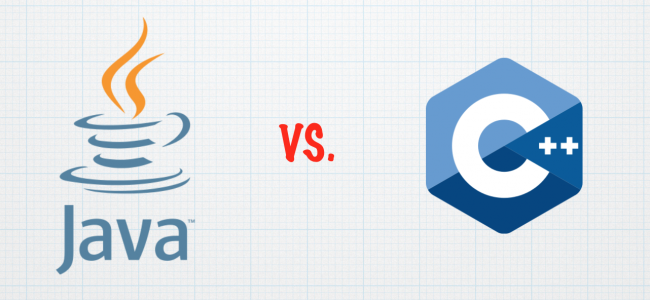
Java Vs C++ – Which Language to Choose in 2021 for Web Application Development?
C++ and Java both are object-oriented programming languages. But both languages are different from each other in multiple ways. C++ is inherited from C and comprise of both procedural and object-oriented programming languages. It was designed for application as well as System development.
Java is based upon the virtual machine which is immensely secure and highly portable in nature. It is offered with a comprehensive library to offer support for the abstraction of the existing platform. It was mainly designed for the development of application programming and has a functionality of an interpreter to printsystems which was later developed into network computing.Seeing the popularity of both language it is challenging for the enterprises to choose between Java Vs C++ for the web application development.
Introduction to Java
Java is programming language designed & developed by Sun Microsystems. A small software development team designed &developed this language. They were popularly known as the Green Team, who launched Java language in the year 1991.
History of Java
Initially Java was called OAK. The main reason behind its development was to handle devices and set-top boxes. Oak was a huge failure. But in 1995 Sun changed the name to Java and customized the language to take benefit of the ever-expanding World Wide Web development business. This has resulted into the growth of Java Web Application Development among business enterprises.
Introduction to C++
C++ is a computer programming language having the feature of C programming language and Simula67. C++ introduced the concept of Class and Objects.It encapsulates both high and low-level language features. Thus it is considered as an intermediate level language. Earlier it was termed as “C with classes” as it comprise of all the properties of the C language.
History of C++
C++ language was developed by Bjarne Stroustrup. He was a strong supporter of C and an admirer of Simula67. He wanted to combine the best of both the languages to create a language which supports OOP features and still retains the power of C. This resulted in C++.
Key Differences to Understand Java Vs C++
Below is the list of points mentioned that explain the Java Vs C++ performance
1. Platform Independence
C++
C++ is a platform dependent language and the source code written needs to be compiled on every platform.
Java
Java is platform-independent and once the source code is compiled into byte code, it can be executed on any platform.
2. Compiler and Interpreter
C++
C++ is a compiled language. The source program in C++ is compiled into an object code which is later executed to produce an output.
Java
Java is both compiled and an interpreted language. The compiled output of a Java source code is a byte code which is basically platform-independent.
3. Portability
C++
C++ code is not portable and must be compiled for every platform.
Java
While Javatranslates the code into byte code. This byte code is portable and is easy to execute on any platform. This feature makes Java Development Services the preferred choice of business enterprises.
4. Memory Management
C++
C++ supports manual memory management. Developer has to allocate/deallocate memory using the new/delete operators.
Java
On the other hand Java supports system-controlled memory management.
5. Multiple Inheritance
C++
C++ supports different types of inheritances comprising single and multiple inheritances. Although there are problems coming from multiple inheritances, C++ uses the virtual keyword to address the problems.
Java
Java, supports only single inheritance. Effects of multiple inheritance can be achieved using the interfaces in Java.
6. Virtual Keyword
C++
In C++ dynamic polymorphism, the virtual keyword is used with a function to indicate it can be overridden in the derived class. This way polymorphism can be achieved.
Java
Here the virtual keyword is absent. But in Java, all non-static methods by default are overridden. Or in simple terms, all non-static methods are virtual by default.
So keep these Java Vs C++ differences in mind for making a smart selection decision.
Frequently Asked Questions
1. What is Java programming?
Java is a general-purpose programming language that is concurrent, class-based, object-oriented, and particularly designed to have as few dependencies. A virtual machine, called the Java Virtual Machine (JVM), is used to run the bytecode on every platform.
2. What is a Java Web application?
A Java web application is a collection of dynamic resources and static resources. A Java web application is easily deployed as a Web Archive file.
3. Why is Java used for Web applications?
Java is the first name that can be used for building complex web applications and for the software platform that used this programming language. It is widely used by development companies to build secure, robust and scalable web applications.
4. How much does it cost to develop a web application?
The cost of web application development is calculated on the basis of features and functionality needs to be integrated within.
Wrapping Up:
C++ and Java are both object-oriented languages. In addition, C++ is a procedural language too. There are some innovative features including inheritance, pointers, memory management, and polymorphism, in which both languages differ. Making a selection between the two is challenging and completely depends on the project development requirements. There are some characteristics like easier syntax, automatic garbage collection, lack of pointers, and templates that make Java a favorite for web-based applications. Brands can hire Java developer to make optimum use of this remarkable programming language for their business web application development.

